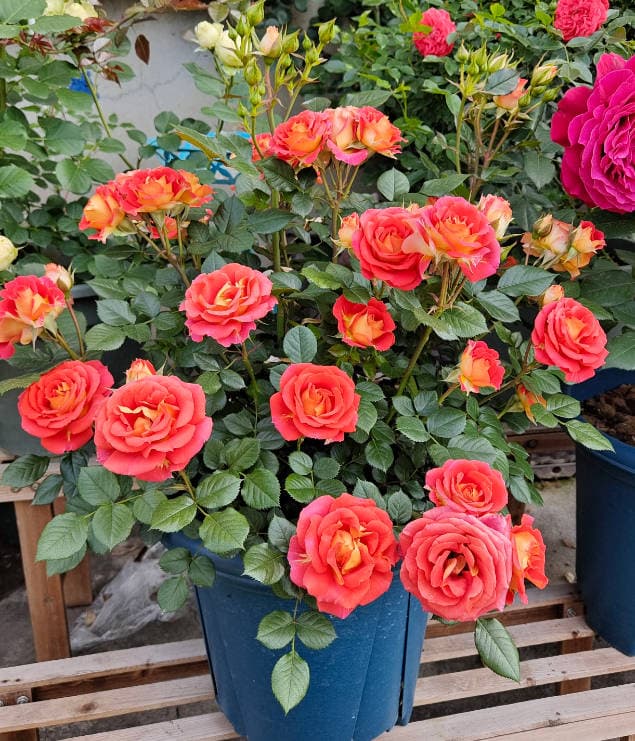Best Time to Plant Roses for Maximum Growth
Many novice gardeners ask, “When is the best time to plant roses?” This article will detail the ideal time to plant roses to help you improve your planting success.
The best time to plant roses regardless of seedling condition

If you don’t consider the specific seedling condition, early spring before germination is the best time to plant roses.
- Reason: In early spring, roses are still dormant and transplanting will have minimal impact on their growth.
- Suitable seedling types: Both bare-root seedlings and seedlings with soil clusters have a higher survival rate at this time.
- Cautions:Bare-root seedlings must be planted before germination, and are not suitable for transplanting if a large number of new shoots have already sprouted.
The best planting times considering the condition of the seedlings

Excluding bare-root seedlings, the best planting times for roses are early spring and fall.
Why early spring and fall?
Advantages of transplanting in early spring (as already mentioned):
- Roses are dormant, transplanting is less disturbed and the survival rate is higher.
Advantages of fall transplanting:
- As the weather cools down, roses are recovering from their short summer dormancy and are about to enter a period of rapid growth.
- Pot plants transplanted with soil have less impact on their growth, adapt quickly after transplanting and continue to grow until they go dormant in winter.
- The entire fall growth phase allows roses to fully develop and build up nutrients during winter dormancy.
Why is May (flowering season) not a good time to transplant?

Many florists like to buy roses in May because this is the time when they are in flower and potted seedlings are in excellent blooming condition. However, from a rose growing point of view, this is not the best time to do so:
- High temperature impact: With the warmer temperatures in late spring, transplants will soon be exposed to the summer heat, which will increase the growth pressure.
- Nutrient Depletion: Spring bloom has already depleted a lot of nutrients, which are slower to recover after transplanting.
- Summer challenges: newly transplanted roses need extra management to survive the summer safely.
Flexible planting possibilities
Potted roses can be transplanted throughout the year if managed properly (e.g., providing shade, adequate watering, etc.). However, to reduce risk, early spring and fall are still more prudent choices, allowing roses a longer period of acclimatization and growth.





